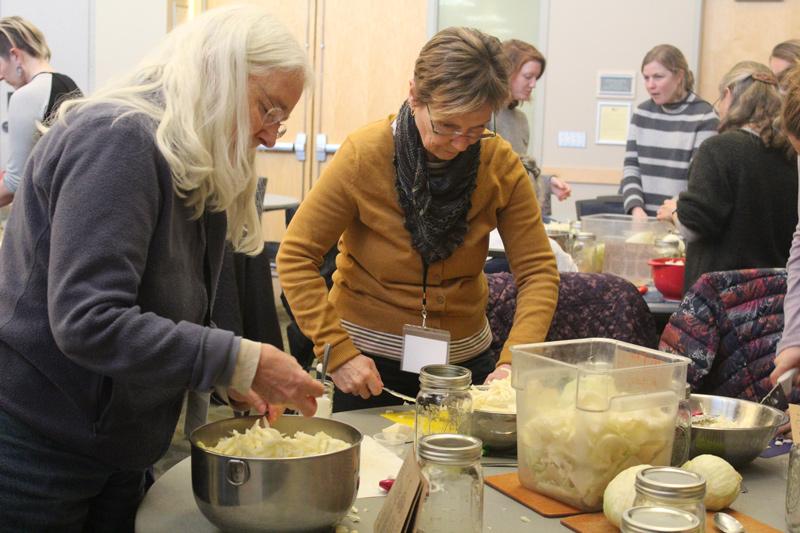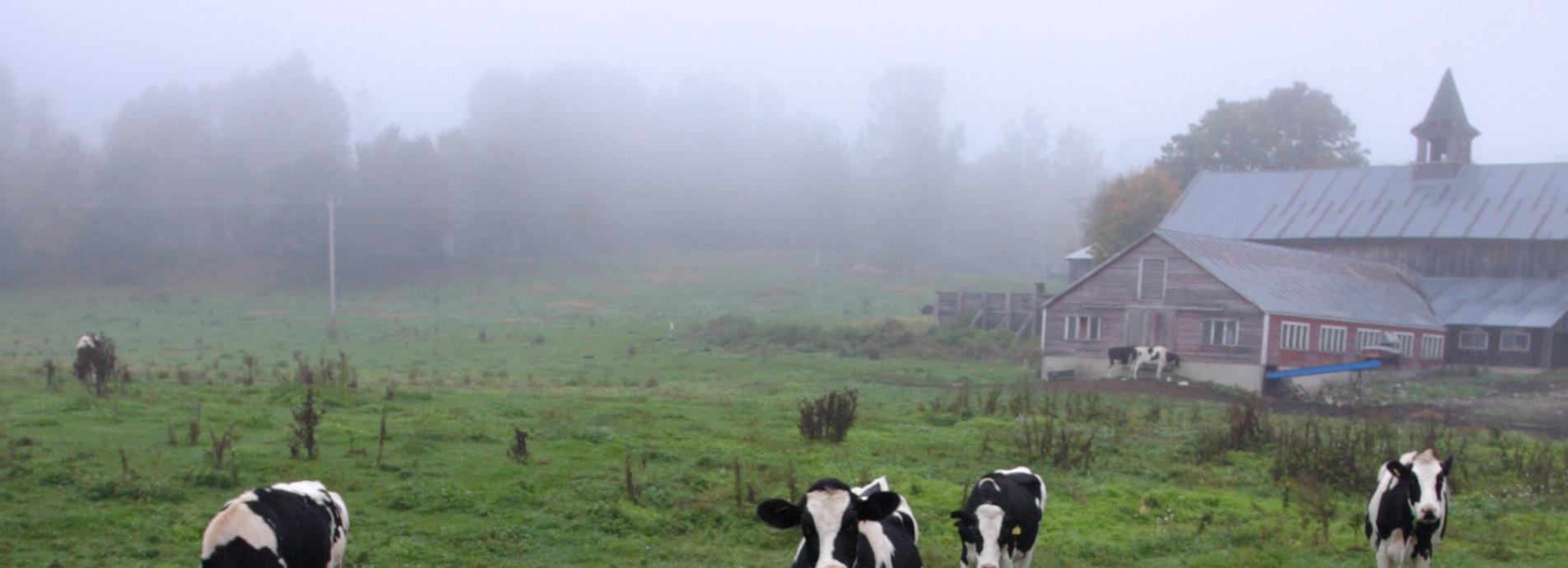Over the years, we've gotten more and more requests for hands-on, participatory workshops at NOFA-VT's annual winter conference. Below is a list of workshops and intensives featured in this year's event! Time to roll up your sleeves and dive in.

Workshops featured on Saturday, February 15th:
-
Cultures & Culturing, Part 1: Fermentation & Nixtamalization Nancy VanWinkle, Nomadic Roots Kitchen; Tony VanWinkle, Sterling College (Saturday Session 2)
In this workshop, participants will explore traditional techniques and knowledge for the fermentation and nutritional enhancement of foods. Presenters will cover how cultures have harnessed beneficial bacteria and chemical processes to alter, enhance, and preserve food throughout time and space. The presentation will be accompanied by demonstrations and tastings. We will examine both fermentation and nixtamalization.
- Cultures & Culturing, Part 2: Hands-On Kimchi Nancy VanWinkle, Nomadic Roots Kitchen; Tony VanWinkle, Sterling College (Saturday Session 3)
Interested in learning how to make your own kimchi? In this hands-on workshop, participants will learn about traditional sauerkrauts from around the world and focus on the iconic Korean kraut, kimchi. Every participant will take home their own jar of homemade kimchi. In this hands-on learning experience, we will get messy, so bring your enthusiasm and your curiosity!
- Make Your Own Quick Mozzarella Carol Fairbank, Broadfork Farm (Saturday Session 3)
In this hands-on workshop, you'll learn to make a quick mozzarella that you'll be sampling within the hour. We'll start by adding some ingredients to fresh cow's milk, and while the magic happens, we'll explore some basic cheesemaking techniques and dairy science. After we've created mozzarella curd, you'll have a chance to stretch and form the curd into a delicately layered pasta filata (pulled curd). What could be more fun than stretching your own mozzarella? Eating it warm, of course! After all, it's the best part of the pizza!
-
Making Herbal Tinctures and Salves Betzy Bancroft, Vermont Center for Integrative Herbalism (Saturday Session 1)
Tinctures and salves are very useful remedies to have in one’s home herbal medicine kit, ready when you need them. This class will be a demonstration of how to make an herbal infused oil and then turn it into a salve. Participants will also make a simple tincture, from preparing the herbs to pressing the finished product. The methods we cover can be applied to any herbs, (and include the special step particular to cannabis), so participants will be able to prepare the remedies they most want and need.
-
Peening and Sharpening Your European Scythe Blade Emily Guirl, Elisabeth Benjamin, Scythe Supply (Saturday Session 3)
Ever tried to cut a tomato with a dull knife? Mowing with a dull blade is just as frustrating, though less messy. In this workshop Emily and Elisabeth will demonstrate peening techniques with a peening jig and with a hammer and anvil. They will review field honing and share tips to dial in your sharpening and peening. Part of the session will be directed by attendees' interests and questions.
-
The Untapped Resource on Your Farm or Homestead: Weeds as Medicine for your Community! Katherine Elmer & Kara Buchanan, Spoonful Herbals (Saturday Session 2)
Learn about common weeds or easy to grow medicinal plants on your farm and homestead, and basic herbal preparations that can be added to a general farm CSA or woven into an Herbal CSA. Katherine and Kara have offered an Herbal CSA program for the past five years in the Burlington community and will share examples and samples of delicious, simple and useful preparations emphasizing weeds and invasive plants.
Workshops featured on Sunday, February 16th:
- Radical Self Care for Skin in Winter Marie Frohlich, Taproot Consulting, LLC (Sunday Session 1)
Garden hands and feet going into winter wood stove heat! Come learn herbal ways to nourish skin inside and out using food and topicals. Demo, samples and recipes provided.
- The Magic of Wild Yeasts - Bread Baking with Sourdough, Part 1 Heike Meyer, Brot Bakery (Sunday Session 2)
In this two part workshop we will learn the fundamental basics of sourdough alchemy and how to use it in bread making. During Part 1, we will talk about the basics of sourdough fermentation, the principles of feeding and storing a sourdough culture, how to make a basic sourdough bread and the health benefits of sourdough baking. Bring your questions and your appetite for a sensory bread tasting, and take home your very own sourdough starter.
- The Magic of Wild Yeasts - Bread Baking with Sourdough, Part 2 Heike Meyer, Brot Bakery (Sunday Session 3)
In this two part workshop we will learn the fundamental basics of sourdough alchemy and how to use it in bread making. In Part 2 of this workshop, we will dive deeper into the magic of wild yeasts and talk about special consideration for bread baking with sourdough, grain and flour considerations and how to properly shape and ferment a sourdough bread for optimal results. Bring your questions and your appetite for a sensory bread tasting, and take home your very own sourdough starter.
Monday Intensives, February 17th:
- Indigenous Foodways Mariah Gladstone, Indigikitchen (Monday 9 am-3 pm)
Join Mariah Gladstone, advocate for the Native Food movement and creator of Indigikitchen, to gain a better understanding of the history of the food and food systems of North America’s native peoples. The presentation will cover the traditional relationship with the land and food, the relocation and reservation period, the importance of cooking with and honoring regional Native foods, and current food sovereignty work happening within the indigenous community. During the in-depth, hands-on workshop, Mariah will discuss indigenous corn varieties and the stories and methods that accompany them. Participants will learn the process of nixtamalization to transform dried corn into a delicious dish. In addition to making corn flour, everyone will help prepare an elderberry BBQ sauce to create a shredded wild game roast and make corn cakes from the finished flour.

